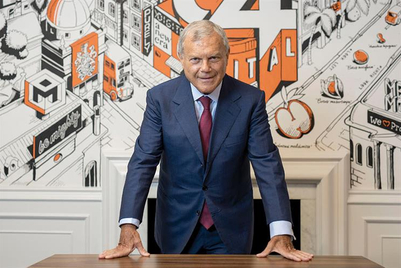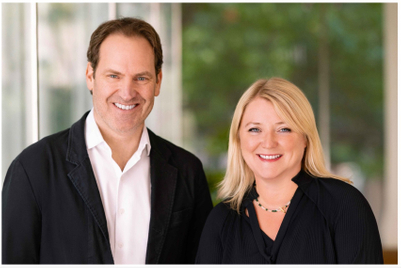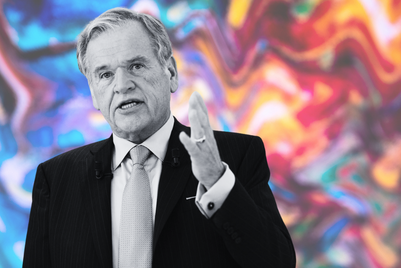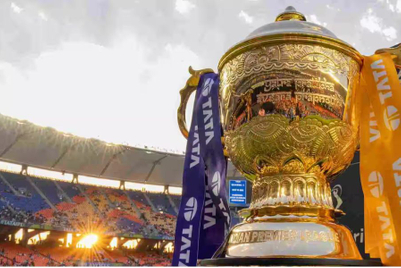VMLY&R. Wunderman Thompson. Dentsumcgarrybowen. And now, AKQA Group.
People with long careers in agency land might be horrified to see what’s happening to some of the industry’s most venerable creative names. Others may see it as a sign of the times.
For the past few years, all of the major holding companies have worked to simplify their structures while breaking down silos to meet client demands as their organic growth and revenues have tanked. But they’ve taken different approaches to get there.
Where IPG and Omnicom have doubled down on their agency brands, WPP, Publicis and Dentsu have leaned into mass consolidation -- sometimes sacrificing iconic agency names.
There’s no one-size-fits-all approach. While agency brands carry recognition and legacy among clients and prospective talent, holding companies can no longer afford to operate in silos -- and legacy can be a double-edged sword. Consolidation, on the other hand, forces collaboration, but risks killing off venerated agency names.
When Publicis Group restructured into four generic pillars in 2015, it arguably diluted brands like Leo Burnett and Saatchi & Saatchi. But, at the same time, it created a much more simplified offering for clients under its “Power of One” structure, winning it network level relationships from brands including Disney and McDonald’s.
IPG and Omnicom, on the other hand, have leaned into the reputation of networks like McCann and BBDO, respectively, to win new business, while shedding non-core assets to boost organic growth.
This approach, however, demands a careful balance between forcing collaboration and allowing agencies to operate autonomously. As McCann Worldgroup chairman and CEO Harris Diamond told me this week, “I still believe in the power of brands...what it takes is the willingness to bring them together to get the benefits of that knowledge.” That requires new incentive schemes and a genuine, strategic commitment from leadership to make it work.
WPP, which made headlines twice in the past week for merging Grey with AKQA and folding Geometry under VMLY&R, already the product of a merger, has clearly gone down the consolidation path. In addition to creating Wunderman Thompson in 2018, WPP collapsed Ogilvy’s brands into one global network under John Seifert -- although that strategy is reversing slightly under new global CEO Andy Main.
But WPP’s approach is about more than just casting aside legacy brands in favor of simplification. WPP’s creative agencies have been struggling for years, as clients decrease demand for their bread-and-butter TV ads. Instead of putting creative budgets towards big hero spots from the likes of Grey, clients are investing more into digital experiences with the AKQAs of the world.
Folding the former into the latter helps WPP manage its P&L efficiently while investing in future growth areas -- and benefiting from AKQA’s fresher brand halo.
“WPP is using the relevance of the digital brand to help prop up the struggles of the creative brand,” said Jay Pattisall principal analyst at Forrester. “And the digital teams are now getting a formidable amount of creative power.”
While names like Grey, J. Walter Thompson and Young & Rubicam evoke feelings of Mad-men era legacy and stature, clients today generally don’t care where the work gets done -- as long as it's good, fast, and teams are easy to access.
Jacki Kelley, CEO of Dentsu in the Americas, which is merging hundreds of brands into six global networks over the next two years, told me as much this week: “It's rare to find a client who cares about the brand delivering a service. What they care about is the capability and the talent.”
As holding companies lean further into integration, there are bound to be more casualties. While it might be shocking to see a century-old name like Grey get shoved to the side, it’s not that surprising that legacy brands are falling out of favor as holding companies reinvent themselves for the future.
“The industry is quite literally trying to move on from the shadow of its advertising heritage to better future proof itself,” Pattisall said.
But a pendulum swing toward consolidation doesn’t mean agency brands no longer matter. I’d argue WPP’s choice to lean into 26-year-old AKQA’s branding over 103-year-old Grey’s proves exactly the opposite.
(This article first appeared on CampaignLive.com)




.jpg&h=334&w=500&q=100&v=20250320&c=1)
.jpg&h=334&w=500&q=100&v=20250320&c=1)

.jpg&h=334&w=500&q=100&v=20250320&c=1)


.jpg&h=334&w=500&q=100&v=20250320&c=1)









.jpg&h=268&w=401&q=100&v=20250320&c=1)

